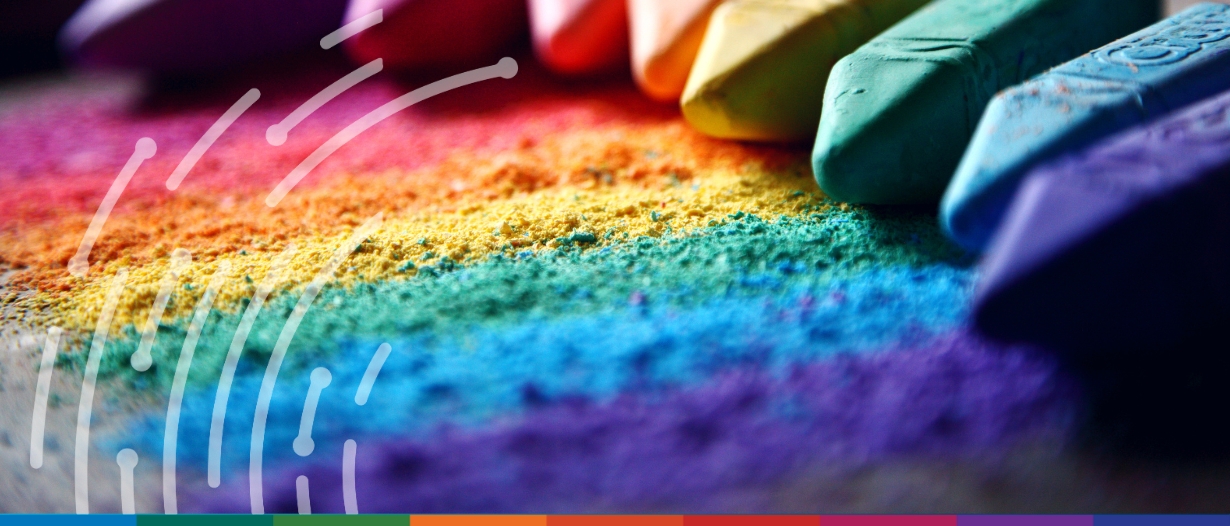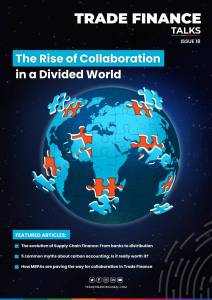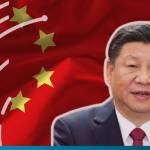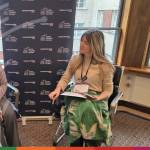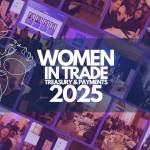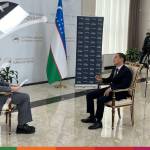Estimated reading time: 7 minutes
The international trade, treasury, and payments space is about removing barriers, bridging divides, and finding common ground to keep the world connected.
At the heart of it all, there’s a human element: unseen but ever present.
Creating an inclusive environment on a macro scale requires the creation of environments for an inclusive society. On a micro scale, everyday people must come first.
A first for the industry, Trade Finance Global (TFG) has partnered with several major organisations in the trade, treasury, and payments space to come together and speak openly about an often overlooked yet invaluable segment in the industry: the LGBTQ+ community.
What does LGBTQ+ mean?
LGBTQ+ is an abbreviation for lesbian, gay, bisexual, transgender, queer or questioning, and more. These terms are used to describe a person’s sexual orientation or gender identity.
Lesbian
A woman whose enduring physical, romantic, and/or emotional attraction is to other women.
Gay
The adjective describes people whose enduring physical, romantic, and/or emotional attractions are to people of the same sex.
Bisexual
A person who can form enduring physical, romantic, and/or emotional attractions to those of the same gender or more than one gender. People may experience this attraction in differing ways and degrees over their lifetime.
Transgender
An umbrella term for people whose gender identity and/or gender expression differs from what is typically associated with the sex they were assigned at birth. People under the transgender umbrella may describe themselves using one or more of a wide variety of terms— including transgender or nonbinary.
Queer
An adjective used by some people whose sexual orientation is not exclusively heterosexual or straight. This umbrella term includes people who have nonbinary, gender-fluid, or gender nonconforming identities.
Questioning
Sometimes, when the Q is seen at the end of LGBT, it can also mean questioning. This term describes someone who is questioning their sexual orientation or gender identity.
TFG’s Deepesh Patel spoke with industry experts Catherine Lang-Anderson, partner at Allen & Overy; Natasha Condon, global head of trade sales at J.P. Morgan; Roberto Leva, trade and supply chain finance relationship manager at the Asian Development Bank; Rogier van Lammeren, managing director, head of trade and working capital products at Lloyds; and Alan Koenigsberg, SVP Visa commercial solutions at Visa.
Over the course of the discussion, the importance of allyship arose as a vital way to break down barriers, find common ground, and propel LGBTQ+ inclusion across the sector.
Allyship: A bridge to inclusivity
An ally is a person who stands in solidarity with LGBTQ+ people, particularly when they themselves do not identify as LGBTQ+.
Allies are vital across all parts of diversity, equality and inclusion (DEI), promoting inclusivity, equality, and social change. They may take various kinds of action. These include: educating themselves and others about LGBTQ+ issues, using their privilege to amplify marginalised voices, challenging discriminatory behaviour, and working to create safer and more accepting environments for LGBTQ+ individuals.
van Lammeren said, “It’s really the allies who bridge the gap between the wider organisation or industry and the smaller groups of individuals within it who are actively trying to deliver change. Having people around us who can influence wider groups of people really makes a difference between doing an okay job or doing a really great job when it comes to diversity, equality, and inclusion.”
This power that allies bring is a testament to their ability to offer unwavering support. From wearing symbolic items like rainbow lanyards to attending events, allies show up visibly, creating a powerful show of solidarity, which can make an impactful difference for some community members.
Condon said, “Every time you meet someone welcoming, maybe they’re wearing that rainbow lanyard, you don’t need to worry about having that conversation or censoring the pronoun you use to describe your partner. You know, it’s going to be okay.”
One of the powerful aspects of allyship is that it is open to anyone: all it takes is the right mindset and a willingness to support those around you.
Lang-Anderson said, “Being an ally is partially about educating yourself and knowing that you’ll always need to be open and eager to learn. It’s important not to let a lack of complete knowledge hold you back from trying to visibly show support. People will always be happy to help you when they can see your commitment to being supportive.”
Sometimes, however, one of the best things that an ally can do is provide space when it is needed.
Lang-Anderson added, “A big learning point in my journey as an ally has been knowing when to step back. Some people may not be out at work or out in all parts of their lives, and it’s really important to respect that space as well.”
Allies in the work environment
People are at the heart of any great organisation, and when they feel their best, they perform at their best, making an inclusive and supportive environment critical for business success.
“Allies are essential to make a person feel at ease in a work environment. Being unable to rely on colleagues as allies would be as hard as going through your personal life without friends or family,” Leva said. It’s a very bad situation that does not allow you to give 100%. That’s how important the role of an ally is in an organisation,” he added.
But it’s more than just helping others excel at work; embracing allyship is a powerful tool for self-development to help the ally themself grow and thrive in other areas.
Leva added, “Embracing the attitude of an ally also allows someone to grow their level of empathy overall, which really goes beyond just helping the LGBTQ+ community and can help a person grow and thrive in their role. Especially when that role involves dealing with people from different backgrounds or life situations.”
The concept of allyship does not stop at the walls of your organisation. There can be countless opportunities, particularly for leaders in any industry, to use their professional skills to promote inclusivity in other settings.
Koenigsberg said, “I made a New Year’s resolution one year that I wanted to start giving back, and I’ve since joined two nonprofit boards. Between opportunities like these and your day job, sometimes magic happens, and you can bring all that together. Maybe the nonprofit can come into the company for a lunch and learn, or the company can sponsor a gala dinner event. All of that sends a very positive message about your own personal commitment.”
Fostering positive change
Through shared experiences, supportive actions, and genuine engagement, allyship can drive meaningful change and make the world of trade, treasury, and payments a more inclusive and welcoming space for everyone.
Condon said, “It’s an admirable thing to advocate for yourself, but people who fight for others when there’s no personal benefit to them, those people are special.”
In a realm where financial institutions are often associated with numbers and transactions, it is important to remember that true progress transcends balance sheets.
Allyship emerges as a beacon of hope and transformation, capable of weaving inclusivity into the fabric of the trade, treasury, and payments industry.
As the discourse on allyship gains momentum, it is clear that the road to inclusivity begins with open conversations, empathetic actions, and a collective commitment to fostering positive change.
Some useful resources for LGBTQ+ allies
Stonewall LGBTQ+ Allies Programme: A comprehensive program by Stonewall that offers in-depth training and understanding to foster LGBTQ+ inclusion in workplaces: https://www.stonewall.org.uk/stonewall-lgbtq-allies-and-trans-allies-programmes/lgbtq-allies-programme
How to be an LGBTQ+ ally – Imperial College London: A resourceful guide from Imperial College London that provides insights and actionable steps on being an effective LGBTQ+ ally, emphasizing the importance of creating an inclusive environment:
https://www.imperial.ac.uk/equality/resources/lgbtq-equality/how-to-be-an-lgbtq-ally/
Allies and Advocates: Creating an Inclusive and Equitable Culture: A book by Amber Cabral that offers practical strategies and real-world examples to promote inclusion and diversity, guiding readers on how to transition from discriminatory behaviors to building meaningful connections across diverse backgrounds:
https://outrightinternational.org/
LGBTQ Freedom Fund: A fund that actively pays bail to secure the safety and liberty of LGBTQ individuals in jail and immigration detention, while also addressing the disproportionately high rate of jailing on LGBTQ individuals due to a combination of discrimination and poverty:
National Center for Transgender Equality: A leading advocacy organization focused on advancing the rights and well-being of transgender individuals in the U.S., offering resources, knowledge, and action opportunities on various issues affecting the transgender community:















